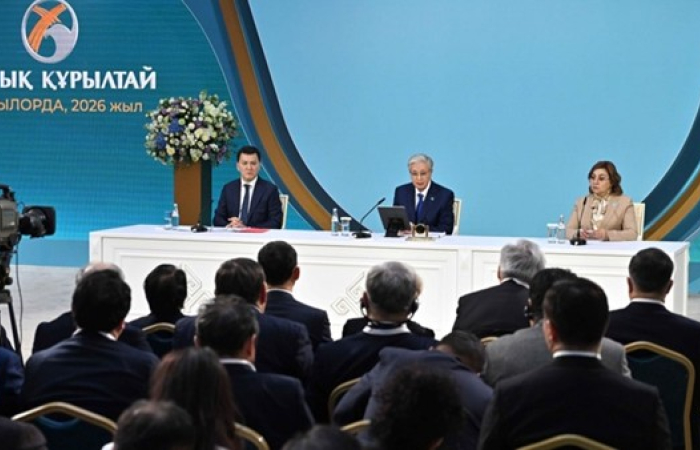Kalush Orchestra have won the 2022 Eurovision Song Contest for Ukraine with their song 'Stefania', at the end of an emotional festival final held in Turin on Saturday (14 May).
It was a memorable night for the iconic Eurovision Festival as Ukraine's Kalush Band swept to victory with the backing of a popular vote from across Europe. If European politicians are hesitant in embracing Ukraine as one of their own, the people of Europe have shown no hesitation in embracing Ukraine's music and culture, and the cause of the Ukrainian people as they fight against Russian aggression.
After the jury scores were tabulated, the United Kingdom’s entry Space Man by Sam Ryder was leading the pack with 283 points, with Sweden and Spain close behind with 258 and 231 points, but that was not the end of the story. After a tension-packed vote announcement, it was revealed that Ukraine claimed top marks with the public from throughout Europe and Australia with 439 points. With those numbers aggregated, Ukraine claimed the win with 631 overall points.
This is the nation’s third win, following victories in 2004 and 2016.
Kalush Orchestra formed as an offshoot of the rap group Kalush, focused on blending modern hip-hop sounds with the motifs found in the traditional music and art of Ukraine. Together, Oleh Psiuk, Ihor Didenchuk, MC KylymMen, Tymofii Muzychuk, Vitalii Duzhyk, and Sasha Tab create a sound and vibe that all of Europe responded on Eurovision's final night.
Their winning song, Stefania, was originally written as a tribute to frontman Oleh Psiuk's mother, but it has been re-purposed as a rallying cry for Ukraine amidst the Russian invasion.
A unique combination of old Ukrainian folk melodies and traditional flute with contemporary rap and hip-hop beats, its lyrics about "broken roads" and fields "turning grey" seemed oddly prescient given the devastation facing the country's citizens.
"After it all started with the war and the hostilities, it took on additional meaning, and many people started seeing it as their mother, Ukraine, in the meaning of the country," Psiuk said last week. "It has become really close to the hearts of so many people in Ukraine."
You can watch the winning song on You tube here
Receiving the winning trophy, Psiuk declared: "Thank you for supporting Ukraine. This victory is for every Ukrainian. Slava Ukraina."
Speaking backstage, the singer said he hoped Ukraine could stage the contest in 2023.
Ukrainian President Volodymyr Zelensky congratulated Kalush Orchestra and said Ukraine's courage "impresses the world".
In a post on Instagram, he vowed one day to host Eurovision in a "free, peaceful and rebuilt" Mariupol, the port city that has been completely destroyed by the Russian invaders and is now mostly under Russian occupation.
source: commonspace.eu with the European Broadcasting Union, BBC and agencies
photo: Kalush Orchestra win Eurovision 2022 for Ukraine (picture courtesy of the EBU)







